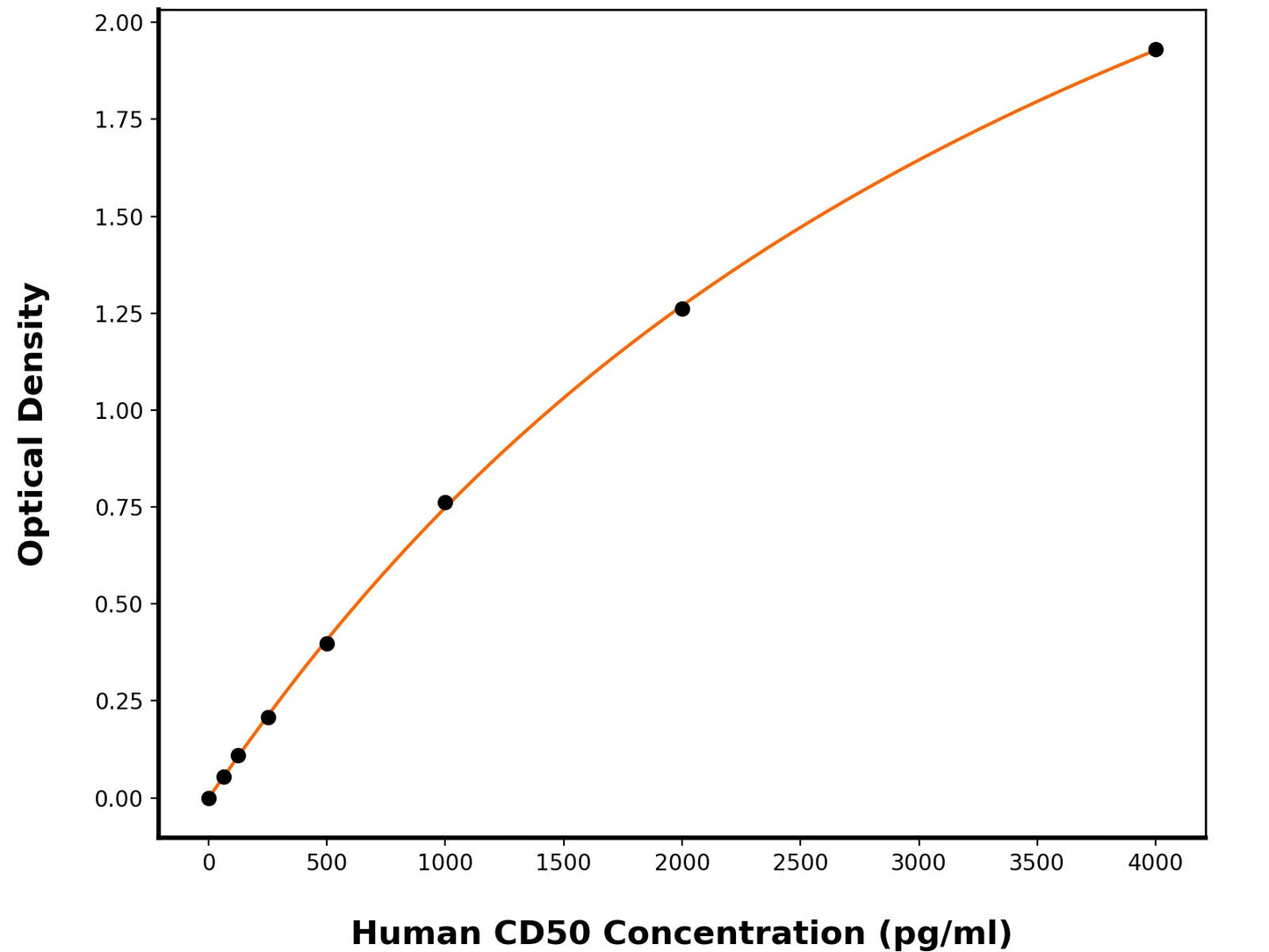1
/
of
1
Human Intercellular Adhesion Molecule 3 (ICAM3) ELISA Kit
Human Intercellular Adhesion Molecule 3 (ICAM3) ELISA Kit
This ELISA kit is designed to detect Human Intercellular Adhesion Molecule 3 (Human ICAM3). The assay plate has been pre-coated with mouse anti-Human CD50 monoclonal antibody. When the sample containing CD50 is added to the plate, it binds to the antibodies coated on the wells. Then, a horseradish peroxidase conjugated mouse anti-Human CD50 Antibody is added to the wells and binds to CD50 in the sample. After washing the wells, substrate solutions are added, and the color intensity is directly proportional to the amount of Human CD50 present. The reaction is stopped by adding an acidic stop solution, and the absorbance is measured at 450 nm.
Catalog No:
BPE066
Regular price
$624.00 USD
Regular price
$480.00 USD
Sale price
$624.00 USD
Unit price
/
per
2 weeks
Couldn't load pickup availability
Product Details
Species Reactivity
Human
Sensitivity
17.17 pg/mL
Detection Range
62.5-4000 pg/mL
Sample Type
Serum, plasma, cell culture supernates
Incubation(s)
3.5 hour(s)
Research Areas
Immunology, Signal Transduction
Background
The protein ICAM-3, also known as CD50, is a member of the intercellular adhesion molecule (ICAM) family consisting of three members. It is a DC-SIGN ligand that is constitutively expressed on resting leukocytes and is thus an important molecule for the first immune response. ICAM-3 comprises five immunoglobulin-like domains and binds LFA-1 through its two N-terminal domains. It functions not only as an adhesion molecule but also as a potent signaling molecule. ICAM-3 binds to LFA-1 on antigen-presenting cells (APC) stabilizing the T cell-APC interaction, facilitating signaling through the CD3/TCR complex. However, recent evidence using cultured and transformed T cells suggests ICAM-3 may also function in signaling. It has been reported that the CD50 molecule can play a role in developing functionally mature T lymphocytes and its expression increases during the maturation process of T lymphocytes. Also, the interactions of ICAM-3 and LFA-1 facilitate HIV-1- induced virological synapse formation between T cells. ICAM-3 is associated with an increase in cellular radio-resistance and cancer cell proliferation. It could be considered as a candidate for anti-cancer drug development and as a cancer diagnostic marker.
Shipping Condition
Shipped on cold gel packs.
Storage Condition and Shelf Life
This product can be stored at 2-8C.
Analyte
Intercellular adhesion molecule 3
Regulatory Status
For Research Use Only

